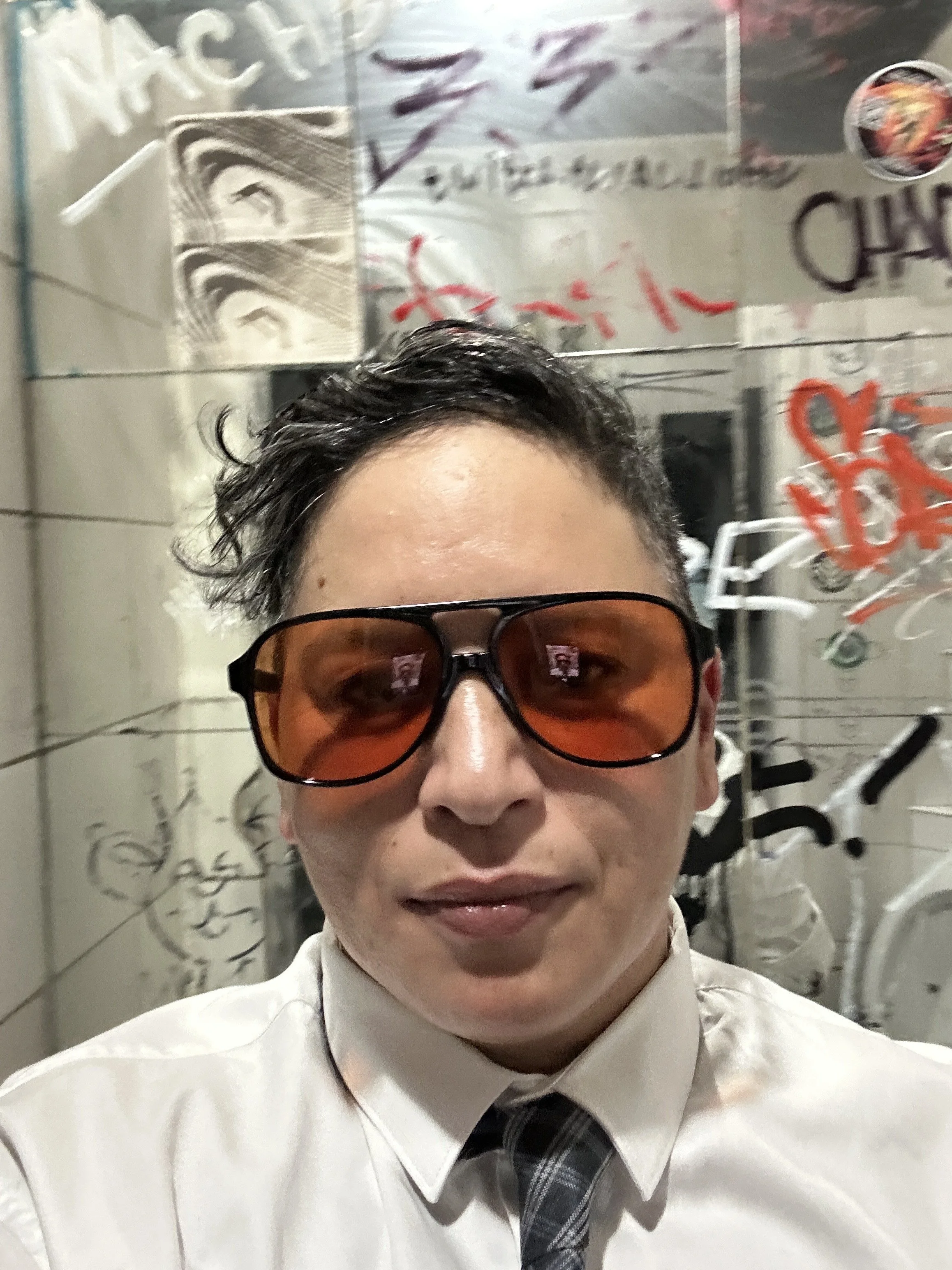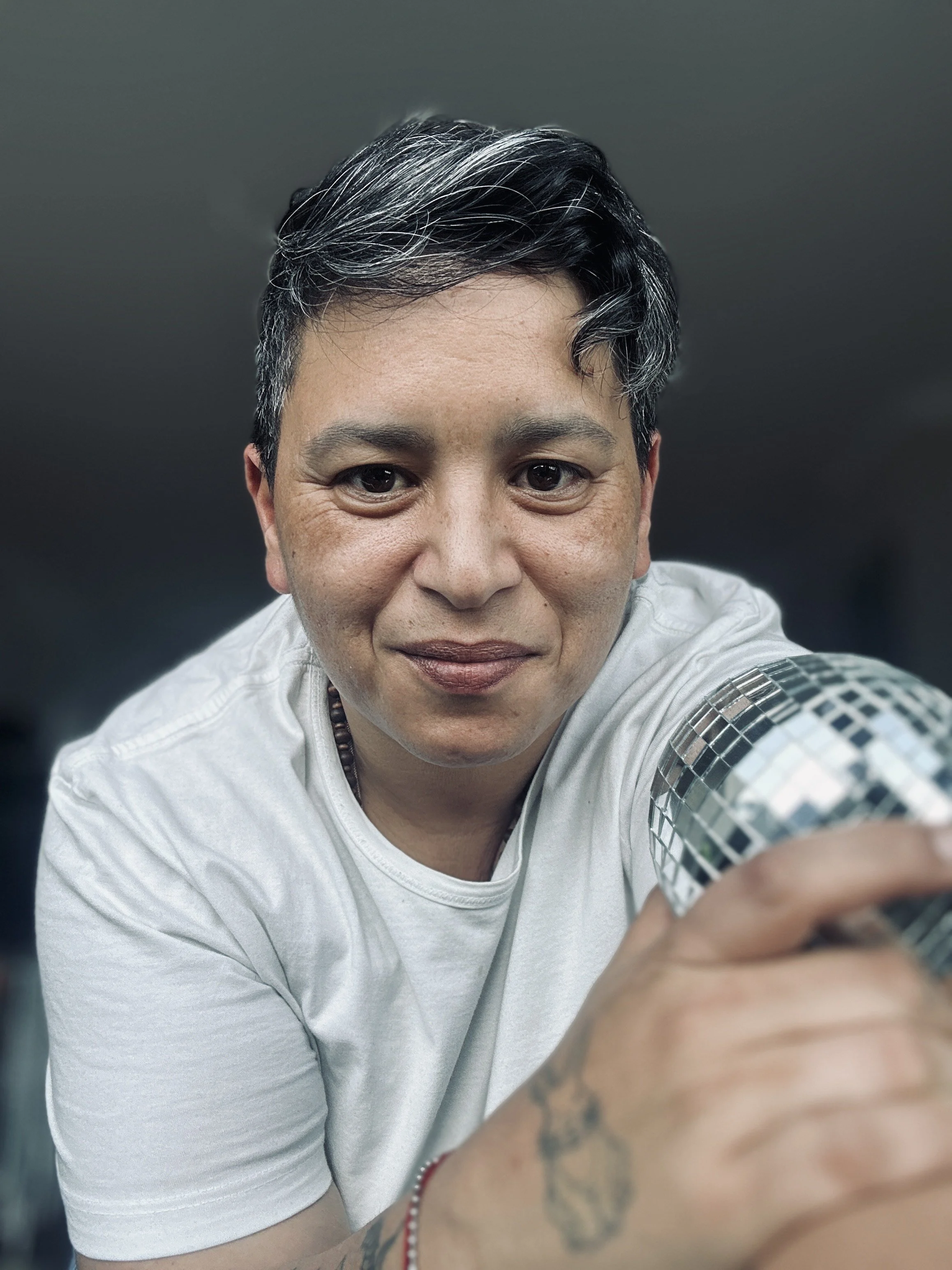OPEN BOOK FESTIVAL PREVIEW: Janine Adams on Queer Celebrations.
The Open Book Festival has long been a highlight of Cape Town’s cultural calendar, and from 5–7 September 2025 it returns with a programme that promises to be its most dynamic yet. Audiences can expect three days filled with thought-provoking conversations, live readings, and creative exchange, all in the heart of the city. This year, there will be a range of discussions and panels that explore a number of queer issues, experiences and challenges.
Queer Celebrations will unpack queer gatherings as resistance, touching on the Cape Town Ball Scene, Pink Party and the politics of joy
“That joy is vital to sustained resistance is not a new idea - it has been recognised in activist spaces for decades I think. Despite that, I do think it can be easy to forget how critical celebration is to undermining control and building energy to continue. To be alive now is fraught - from genocide to climate change to ever increasing inequality, there is very little comfort to be found. It is more important than ever to deliberately find spaces and reasons to celebrate, and to fiercely hold onto the moments of joy,” says Frankie Murrey, the Coordinator and Curator of Open Book Festival.
Chaired by Roché Kester, the programme will feature Janine Adams, Gabe Gabriel and Manila von Teez
SCAFFOLD’s editor-in-chief Gary Hartley speaks to Janine Adams about the role of joy as resistance, and why queer gatherings matter now more than ever.
Why do you think joy can be such a transformative force in queer life?
So much of queer life is rooted in struggle, hardship, and collective trauma. Our existence is intrinsically shaped by discriminatory, violent, and harmful narratives—both external and internal. In this context, nurturing unapologetic joy is a radical act. We move from what is inflicted upon us to what we create for ourselves. Queer joy is far more than a feeling; it's a tool. It’s a tool for healing from a world not built for us, for connecting with ourselves and each other, and for shaping resilience. Holding space for our entire beings, free from performative society, is invigorating. A power source we can draw from. Most importantly, it is world-building. When we gather in joy, we are constructing a reality where we have fun and are celebrated. We show up as the radiant, whole and powerful centre of our own universe.
How can celebrations, big or small, create a sense of cultural memory and shared history?
Celebrations are the living, breathing archives of our community. While history books record milestones, celebrations encode the feeling of those moments into our collective DNA. Our shared experiences create a new lineage - a chosen history - where many of us are estranged from biological families or traditional heritage. Small celebrations create intimate rituals and memories within our daily lives. Bigger gatherings become a classroom; the activity becomes an oral history. The connections forged are threads in new networks, creating collective cultural timestamps. A protest signs a law into existence, but a celebration signs it into our hearts. It transforms a political win into a personal, shared victory. Our gatherings, from a weekly drag night to a massive Pride march, are the rituals that mark our progress. They are our stories, created for now and inspiring what lies beyond.
In your view, what makes gatherings powerful spaces for both self-expression and collective strength?
Gatherings create a unique alchemy where the personal and political fuse. They function as both a mirror and a megaphone. A consciously curated queer space acts as a true mirror, allowing the individual to see, express and celebrate themselves. This validation is the cornerstone of self-expression. As a megaphone, individual expression is celebrated, shared and amplified by the collective. It can empower the individual to emerge fully. One person's joy becomes infectious; their courage inspires others. This strength isn't about uniformity - it's a symphony of individual voices choosing to harmonise. The gathering takes the power of the individual - which can feel isolated outside - and multiplies it. It’s a space where your most authentic self is not just tolerated but celebrated. In that celebration, you become part of something far larger and more powerful.
How do you see joy and resistance working together to better the lives of queer people?
Joy and resistance are intrinsically connected; I cannot have one without the other. Resistance without joy is unsustainable. Leading to burnout, anger and despair. The fight for rights, safety and recognition is exhausting. Joy is the fuel that keeps us going - happiness in the present, reminders of what we’re fighting for. Our right to experience full and beautiful lives.



